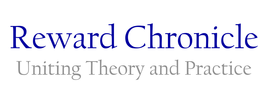|
When it comes to performance related pay, commentary often focuses on the positive effects it can have on employee and organizational performance. But is there a downside? A Finnish study sought to investigate the role that pay for performance can have on employee innovation. The results indicated that reward for innovation related behaviours can stunt radical innovation, while it can have a moderate positive effect on incremental innovation.
Key Topics: Performance related pay; Innovation
Title of Reviewed Article: When the fit between HR practices backfires: Exploring the interaction effects between rewards for and appraisal of knowledge behaviours on innovation
Researchers: Tatiana Andreeva (Maynooth University), Anastasia Sergeeva (Vrije University), Mika Vanhala, Paavo Ritala, and Aino Kianto (Lappeenranta University of Technology). Publication: Human Resource Management Journal, 2017, Vol. 27 No. 2, pp. 209–227. __________________________________________________________________________ Setting the Scene With the business landscape becoming increasingly competitive, effectively managing innovation has become central to the success of many companies, with innovative performance typically being viewed as a function of an organizations capacity to manage, maintain, and create knowledge (Nonaka & Takeuchi, 1995). Research has demonstrated that HR practices can influence innovative employee behaviour by facilitating knowledge creation, transfer and implementation (De Winne & Sels, 2010). Research indicates that individual HR practices do not affect employee behaviours in isolation, but rather in combination with other HR practices (e.g. Jiang, K. et al., 2012). Furthermore, HR practices have been shown to be most impactful when there is alignment between HR practices and towards similar strategic objectives (Purcell, 1999). However, some studies have warned that different HR practices configurations may be suitable for different types of organizational performance, such as different types of innovative behaviour (Collins & Kehoe, 2017). Two common forms of innovation in organizations are incremental and radical innovation. Radical innovation involves significant changes to existing products, processes, and markets, while incremental innovation involves smaller changes and developments (Abernathy & Clark, 1985). Research has indicated that these two types of innovation can require differing levels of complex knowledge creation, sharing and application, and as such these characteristics can provide organizations with significant challenges in aligning HR practices to these different behaviours (Foss, 2007). The present study sought to examine the interaction effects of rewards and performance appraisal for knowledge behaviour, in relation to how they jointly stimulate innovative employee behaviours. How The Research Was Conducted In order to test their hypotheses, the researchers collected data from 259 medium- to large-sized Finnish companies, from various industries. Data was collected through interviews with senior management from each company, primarily HR directors. Data was collected and examined on HR practices (rewards and performance appraisal) and how they influenced innovative behaviour, such as knowledge creation, transfer and implementation. Key Findings and Practical Implications The results of the study indicate that rewards and performance appraisals targeted towards promoting knowledge behaviours can have different effects on incremental and radical innovation performance. For incremental innovation, there was a positive effect from both rewards and performance appraisal, but no interactive effect was found between these two HR practices, meaning they were found to influence incremental innovation independently. The results contradict the commonly held belief that reward and performance appraisals work best when used in tandem. For radical innovation, rewards and appraisal for knowledge behaviours were found to have a negative interactive effect, such that the positive effect of rewards is reduced when combined with performance appraisal of knowledge behaviour. The results provide insight into the complex interacts between HR practices and innovation in organizations, and highlight the need for organizations to consider the impact of HR practices both in isolation and in combination with other HR practices. Furthermore, this study demonstrates that even when HR practices are aligned to the same organizational goals, their combined effects can be nonetheless neutral or even negative. The results indicate that organizations focusing on different types of innovative, such as radical and incremental innovation, will require different HR approaches, and one size does not fit all in this context. Follow us on LinkedIn for all the latest Reward Chronicle updates __________________________________________________________________________ Source Article: Andreeva, T., Vanhala, M., Sergeeva, A., Ritala, P. & Kianto, A. (2017). When the fit between HR practices backfires: Exploring the interaction effects between rewards for and appraisal of knowledge behaviours on innovation. Human Resource Management Journal, 27(2), 209–227. Published by: John Wiley & Sons, Inc. For further details and access to the full journal article Click Here (subscription or payment may be required). __________________________________________________________________________ References: Abernathy, W. J. & Clark, K. B. (1985). Innovation: Mapping the winds of creative destruction. Research Policy, 14(1), 3–22. Collins, C. & Kehoe, R. (2017). Examining strategic fit and misfit in the management of knowledge workers. ILR Review, 70(2), 308 – 335. De Winne, S. & Sels, L. (2010). Interrelationships between human capital, HRM and innovation in Belgian start-ups aiming at an innovation strategy. International Journal of Human Resource Management, 21(11), 1863–1883. Foss, N. (2007). The emerging knowledge governance approach: Challenges and characteristics. Organization, 14(1), 29–52. Jiang, J., Wang, S. & Zhao, S. (2012). Does HRM facilitate employee creativity and organizational innovation? A study of Chinese firms. International Journal of Human Resource Management, 23(19), 4025–4047. Nonaka, I. & Takeuchi, H. (1995). The Knowledge-creating Company. New York: Oxford University Press. Purcell, J. (1999). Best practice and best fit: chimera or cul-de-sac? Human Resource Management Journal, 9(3), 26–41. Comments are closed.
|
|








